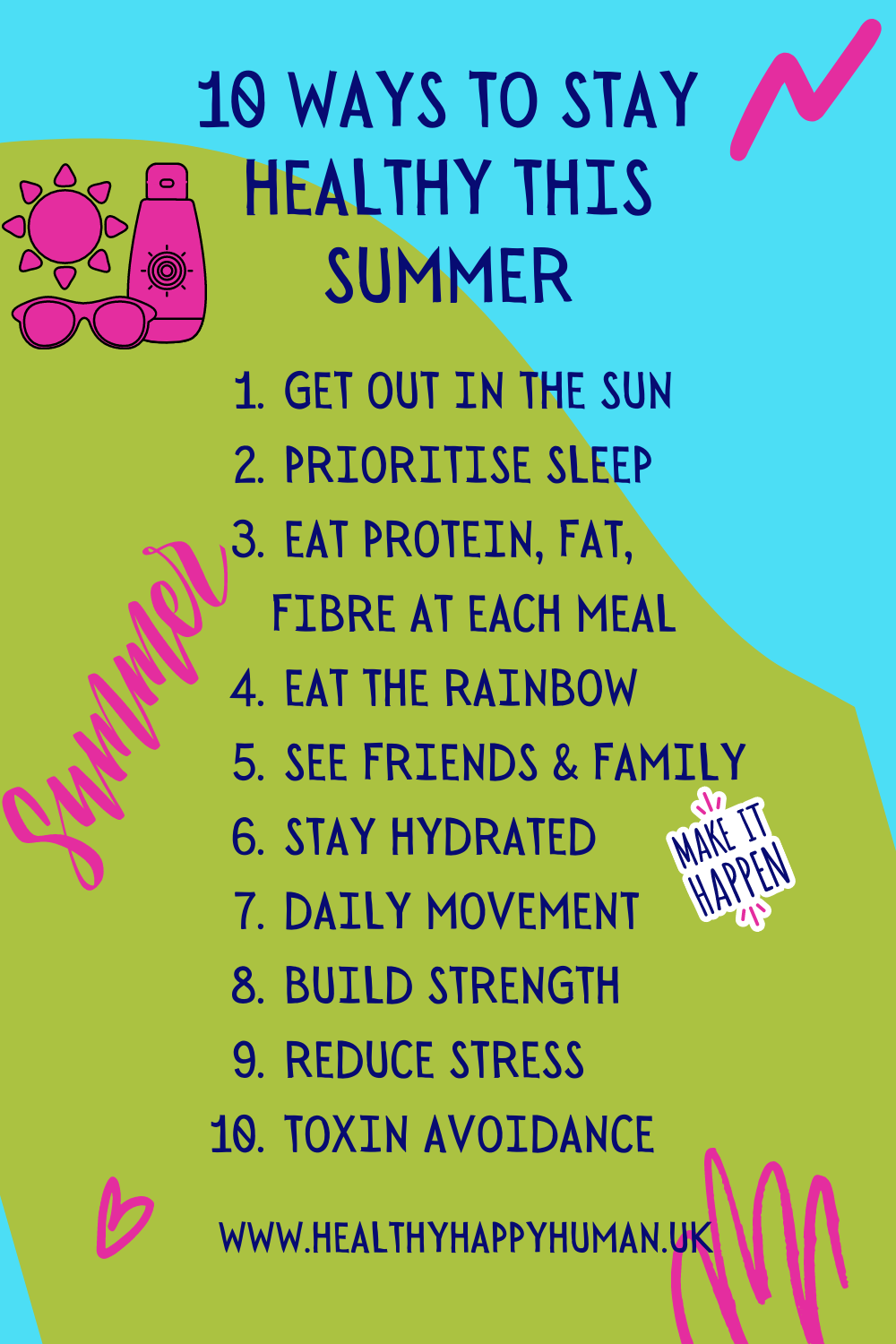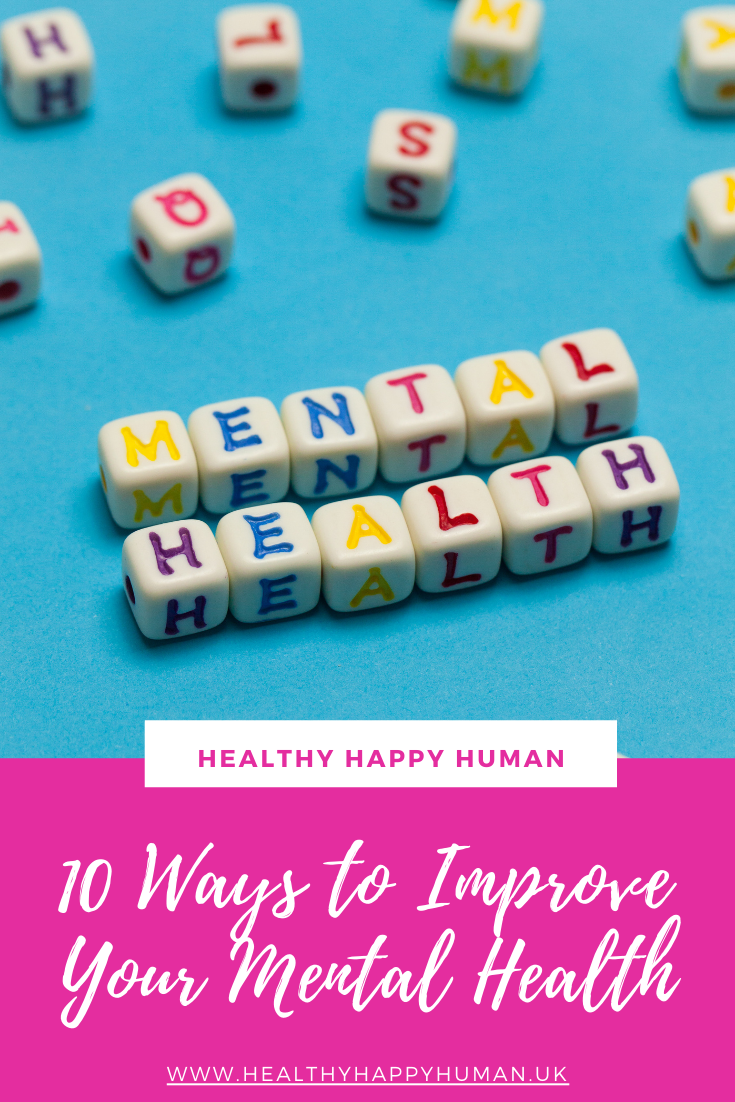With summer now fully here on our doorstep in the UK, it is important to take advantage of the warmer weather and longer hours of daylight to boost our health. Many people are keen to finally get away on well-deserved holidays which have been restricted for so many months. Relaxing on holiday and ideally every few months is key to our health with the amount of daily stress we all experience.
Staying healthy requires a couple of key pieces. Firstly our immune system needs to be strong to be able to deal with viruses which are pretty hard to avoid these days! If it is not coronavirus, it may be the latest outbreak of norovirus. Keep washing those hands! Secondly, we also need to keep our body “functioning well” - this involves keeping our blood sugar stable so that we don’t have insulin problems in the long term which can lead to diabetes and also involves keeping all our hormones balanced. We also need to keep our liver working well to be able to deal with the toxins that we are exposed to through daily life. Staying healthy is not complex but it does require good lifestyle and dietary habits.
Here are ten tips that will help you keep your immune system and body functioning strong during the summer months so that you can stay healthy all year round:
Get out in the sun daily and top up your vitamin D. Be careful not to get burnt, there is a careful balance between being in the sun between 11am and 3pm so that you can obtain vitamin D from the sun and not staying out too long without protection. Try to expose as much of your body to just 15 minutes of sunlight daily. Vitamin D is vital for a strong immune system and for good gut health (over 70% of the immune system is housed in the gut).
Prioritise sleep - even though you will be tempted to stay up late due to the longer hours of light, target 7-9 hours of sleep every night and try to keep the same sleeping and waking times. Lack of sleep impacts our hormones and can also lead to us being tempted by carbohydrate-rich, high-sugar foods and stimulants like coffee and chocolate.
Eat protein, fat and fibre at each meal - this will help keep your blood sugar stable which avoids insulin spikes and therefore you can reduce your risk of diabetes. Great sources of fat are coconut, avocado, extra virgin olive oil and salmon.
Eat the rainbow - eat at least 5-9 colourful fruits and vegetables each day to help your body be hydrated and obtain many vitamins, minerals and antioxidants. This also helps with your intake of fibre which helps keep your bowel movements regular and is vital for regular excretion of toxins.
See friends and family - now that lockdown is officially ending in the UK, it is time to get together with all those friends and family you have been neglecting over the last many months. Relationships are key to our health and happiness, and hanging out with the right people who make us laugh and feel appreciated can significantly reduce stress which negatively impacts our health.
Stay hydrated - hydration is always important as our bodies are mostly made up of water. However, during the summer, we are much more prone to dehydration due to the heat. Dehydration can cause headaches and fatigue and results in cracked lips. Regularly drink filtered water and eat 2 portions of fresh raw fruit daily. Coconut water is great to help us stay hydrated as it balances our electrolytes.
Daily movement is important for our health to help our bodies move toxins efficiently out of the body via lymph fluid and if you can sweat while you are doing it, this releases even more toxins. Our bodies protect our organs from toxins by placing them in adipose tissue so better to try and get toxins out of the body to avoid excess body fat. Try to get those 10,000 daily steps in!
Work on your strength regularly - try to strengthen your muscles daily because we lose muscle mass as we age. According to Harvard Medical School, “after age 30, you begin to lose as much as 3% to 5% per decade”. The NHS advises that we should “do strengthening activities that work all the major muscles (legs, hips, back, abdomen, chest, shoulders and arms) on at least 2 days a week”. Perhaps you can allocate each day of the week to a different muscle group to ensure you never forget any of them. Just 5 minutes a day is enough - you can try these quick pilates videos or Dr Chatterjee’s 5 minute kitchen workout. Strength is vital for staying mobile and pain-free as we age and so we are able to do things for ourselves when we are elderly.
Reduce stress - there are so many ways to reduce stress in the summer which involve getting outside in nature, playing sports and doing fun activities with friends and family during the longer daylight hours. Each of us has our own way of relaxing so ensure you take time to do the things you enjoy and take regular time off from work and looking at screens. According to the National Institute of Mental Health, “continued strain on your body from stress may contribute to serious health problems, such as heart disease, high blood pressure, diabetes, and other illnesses, including mental disorders such as depression or anxiety”. Read my blog post for 10 ways to manage stress.
Toxin avoidance - in order to help our bodies thrive, we need to reduce the amount of toxins we are exposed to daily. The body has to work hard to excrete toxins and the process of detoxification also uses up valuable vitamins, minerals and amino acids. Sunscreen has many chemicals in it so check the ingredients of the one you are using. EWG recommends avoiding sunscreen with oxybenzone and insect repellents and to try to use creams rather than sprays or powders. You can search for your sunscreen on the EWG website and check its safety rating. Deodorant is another way that we can reduce toxins. Try to switch to an aluminium free deodorant. People suffering with Alzheimers have been found to have higher than normal concentrations of aluminium in their brain.
I hope these tips have inspired you to take action to maximise your health this summer. You can download my quiz on the 10 Foundations of Health with 50 questions to score your health and learn more tips to work on your health. Please do follow me on Instagram where I post daily health tips and inspiration and please contact me if you would like a free 15 minute health coaching consultation.










